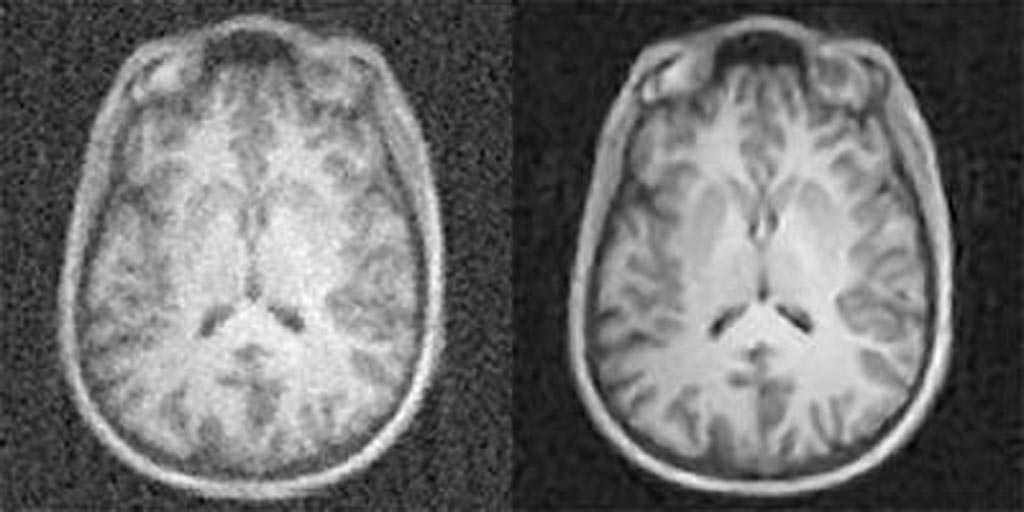AI-Based Approach to Image Reconstruction Provides Faster and Clearer MRI Scans
By MedImaging International staff writers
Posted on 28 Aug 2018
Researchers from the Massachusetts General Hospital (MGH) Martinos Center for Biomedical Imaging (Charlestown, MA, USA) and Harvard University (Cambridge, MA, USA) have used artificial intelligence to develop a new type of medical imaging technology called AUTOMAP, which produces higher-quality images from less information. This cuts down the amount of radiation from CT and PET scans, thus reducing the duration of an MRI scan. The research was funded by the National Institute for Biomedical Imaging and Bioengineering (NIBIB).Posted on 28 Aug 2018
AUTOMAP uses machine learning and software, referred to as neural networks — inspired by the brain’s ability to process information and perceive or make choices. It churns through—and learns from—data from existing images and applies mathematical approaches in reconstructing new ones. AUTOMAP finds the best computational strategies to produce clear, accurate images for various types of medical scans.

Image: MR images reconstructed from the same data with conventional approaches, at left, and AUTOMAP, at right (Photo courtesy of Athinoula A. Martinos Center for Biomedical Imaging, Massachusetts General Hospital).
For their study, the researchers used a set of 50,000 MRI brain scans from the NIH-supported Human Connectome Project to train the AUTOMAP system to reconstruct images and successfully demonstrated improvements in reducing noise and reconstruction artifacts as compared to the existing methods. The researchers found that the AUTOMAP system could produce brain MRI images with better signal and less noise than conventional MRI techniques.
“The signal-to-noise ratio improvements we gain from this artificial intelligence-based method directly accelerates image acquisition on low-field MRI,” said lead author Bo Zhu, Ph.D., postdoctoral research fellow in radiology at Harvard Medical School and in physics at the MGH Martinos Center.
“This technology could become a game changer, as mainstream approaches to improving the signal-to-noise ratio rely heavily on expensive MRI hardware or on prolonged scan times,” said Shumin Wang, Ph.D., director of the NIBIB program in Magnetic Resonance Imaging. “It may also be advantageous for other significant MRI applications that have been plagued by low signal-to-noise ratio for decades, such as multi-nuclear spectroscopy.”
Related Links:
Massachusetts General Hospital Martinos Center for Biomedical Imaging
Harvard University










 Guided Devices.jpg)



